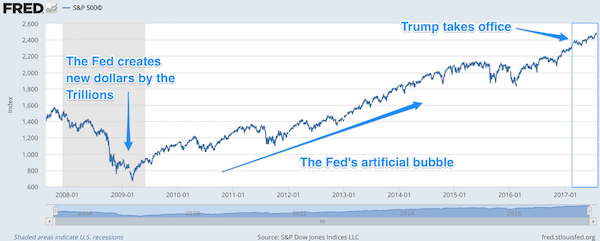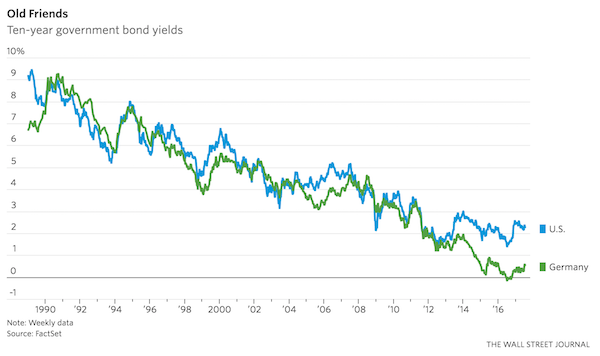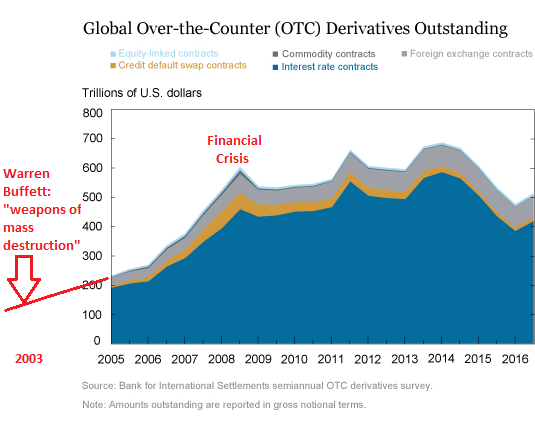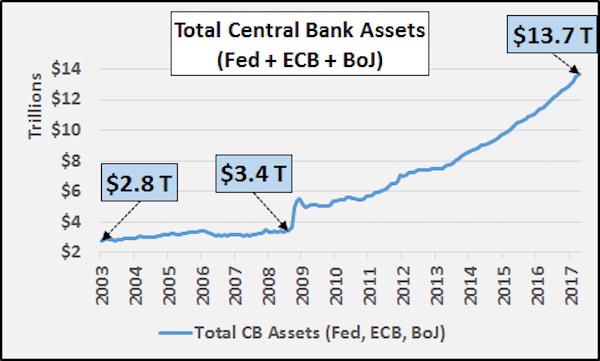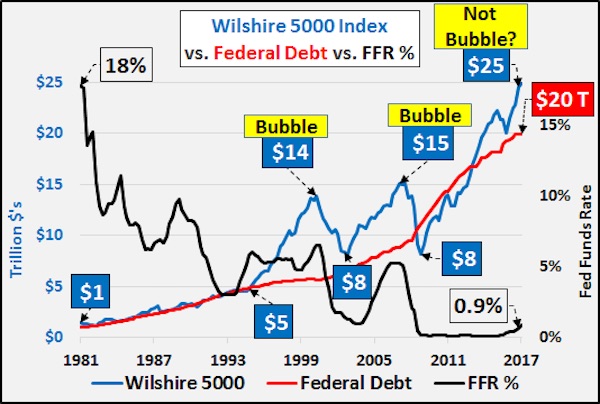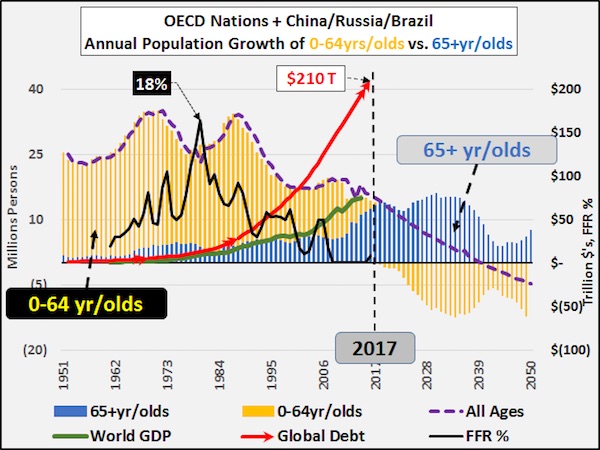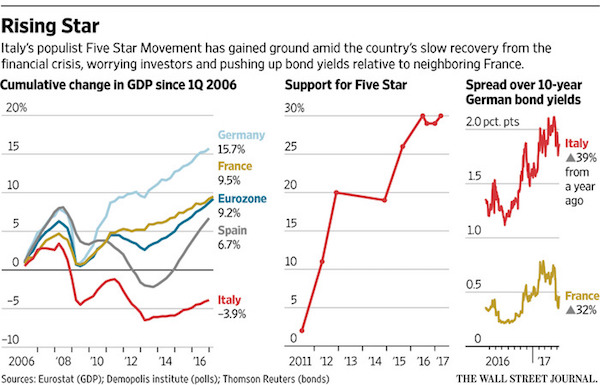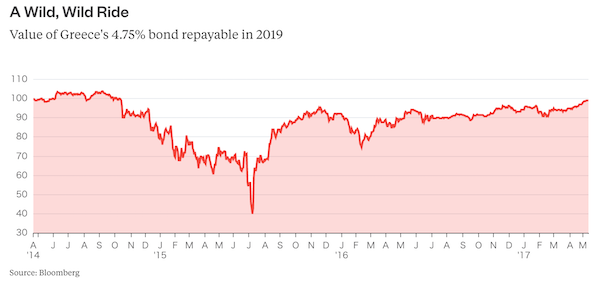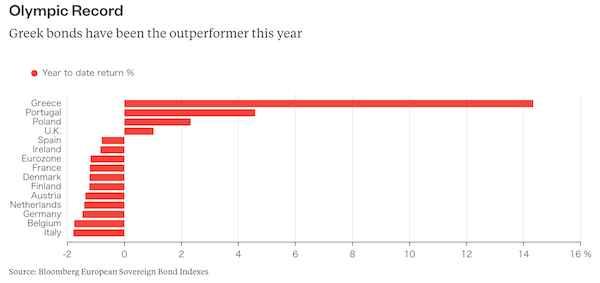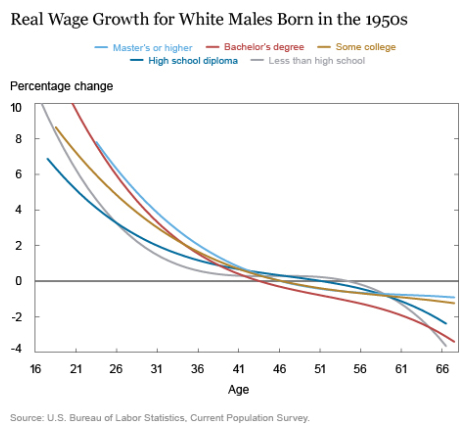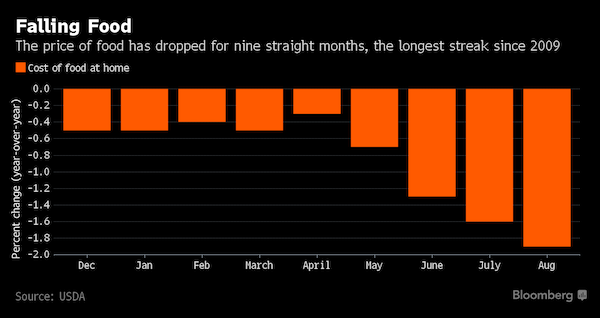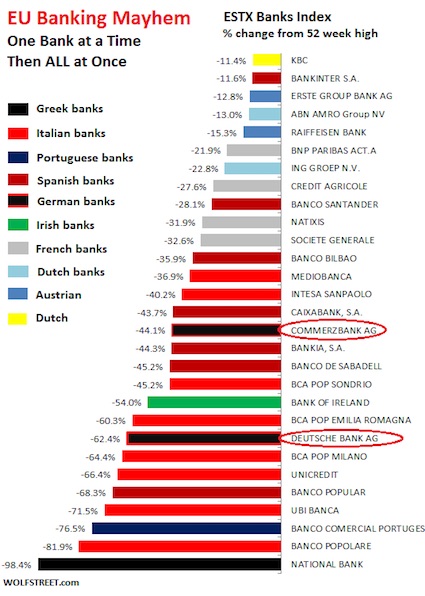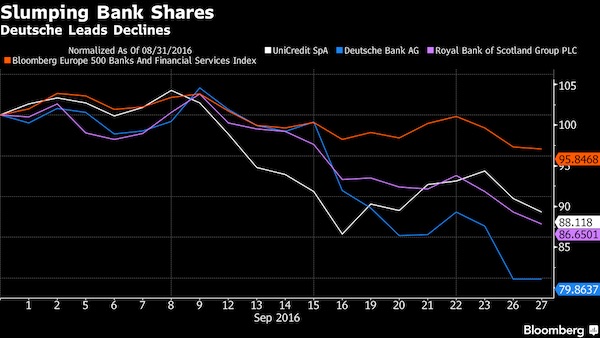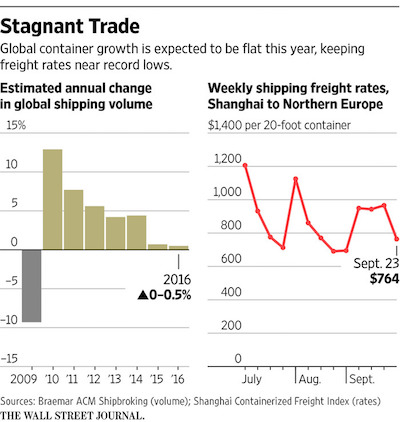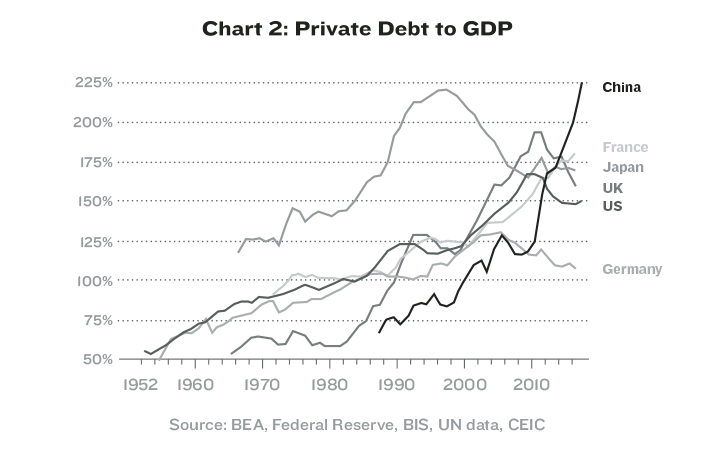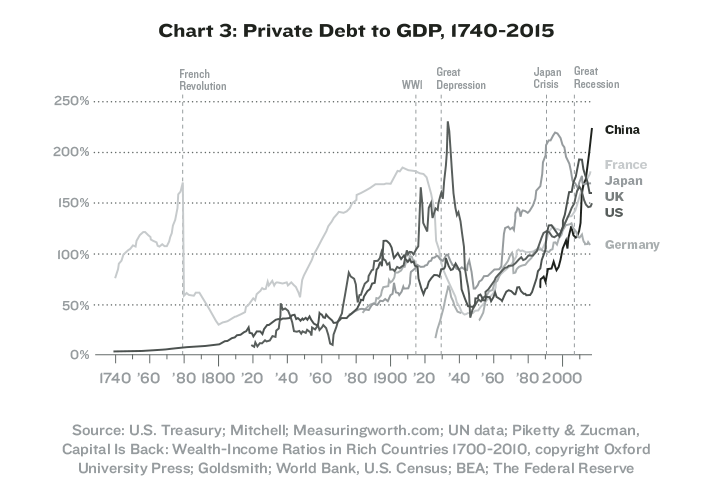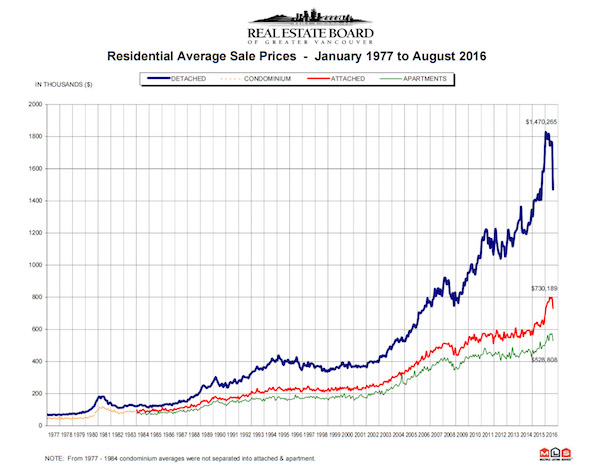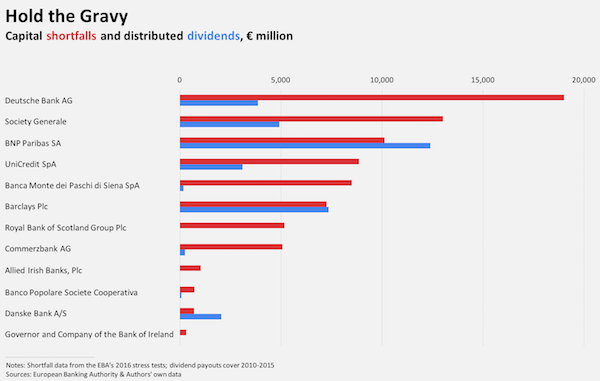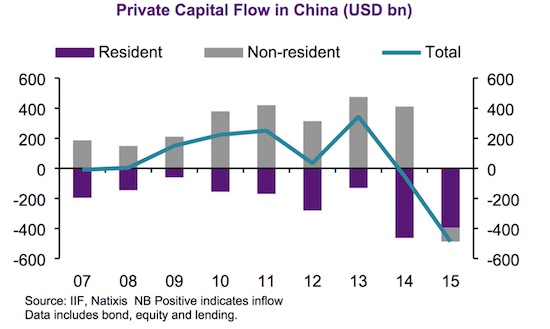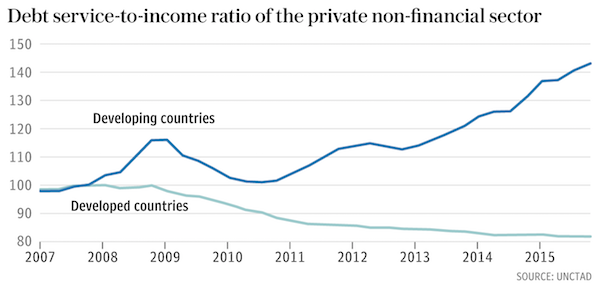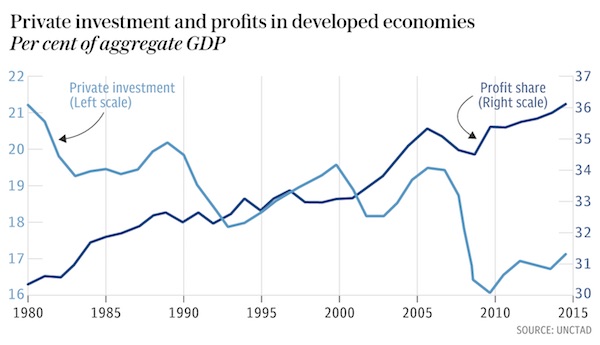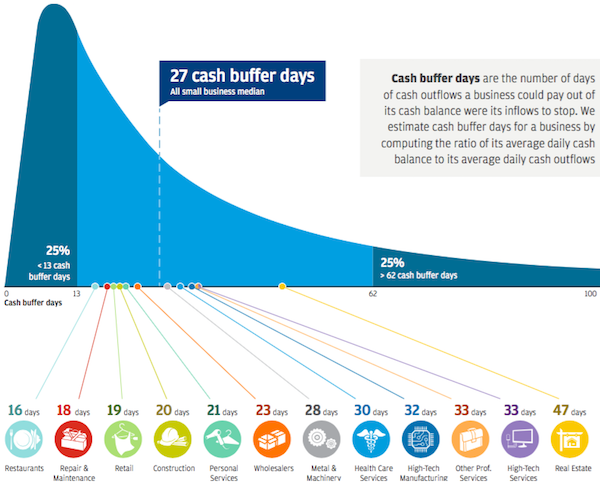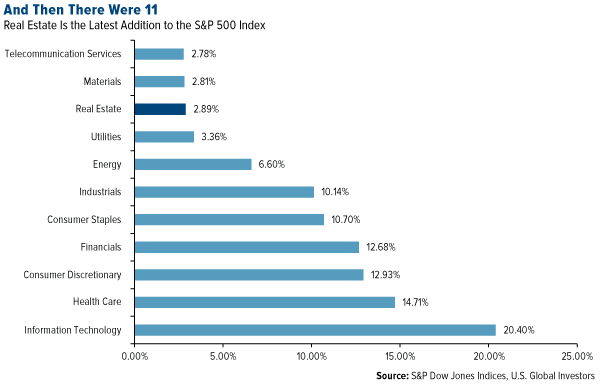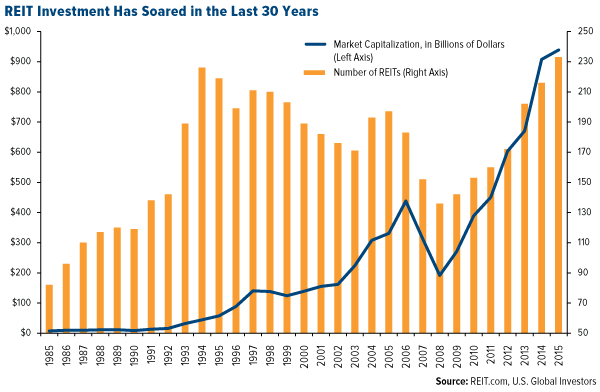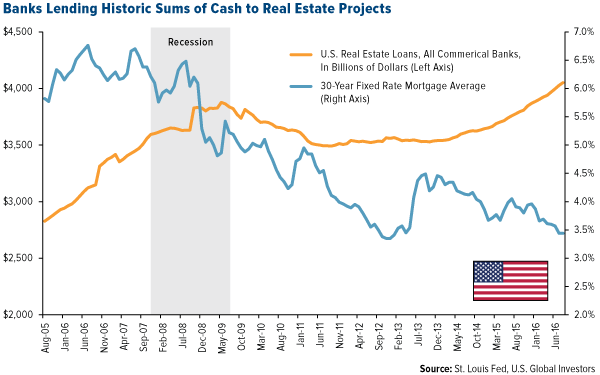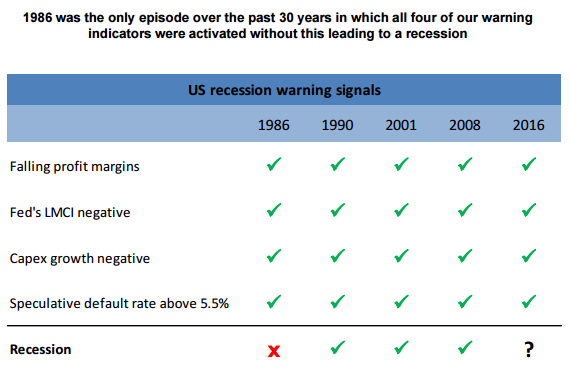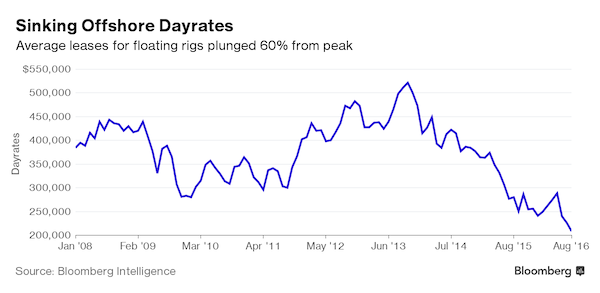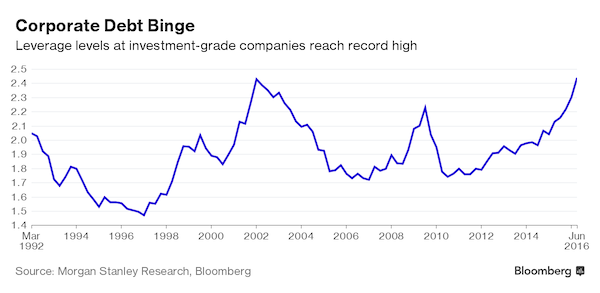
Fred Stein Man in pushcart, New York 1944

David Graeber on the all too obvious. So yeah, let’s have that inquiry.
• We’re Racing Towards Another Private Debt Crisis (Graeber)
This is a call for a public inquiry on the current situation regarding private debt. For almost a decade now, since 2007, we have been living a lie. And that lie is preparing to wreak havoc on our economy. If we do not create some kind of impartial forum to discuss what is actually happening, the results might well prove disastrous. The lie I am referring to is the idea that the financial crisis of 2008, and subsequent “Great Recession,” were caused by profligate government spending and subsequent public debt. The exact opposite is in fact the case. The crash happened because of dangerously high levels of private debt (a mortgage crisis specifically). And – this is the part we are not supposed to talk about—there is an inverse relation between public and private debt levels.
If the public sector reduces its debt, overall private sector debt goes up. That’s what happened in the years leading up to 2008. Now austerity is making it happening again. And if we don’t do something about it, the results will, inevitably, be another catastrophe. These graphs show the relationship between public and private debt. They are both forecasts from the Office for Budget Responsibility, produced in 2015 and 2017. This is what the OBR was projecting what would happen around now back in 2015:
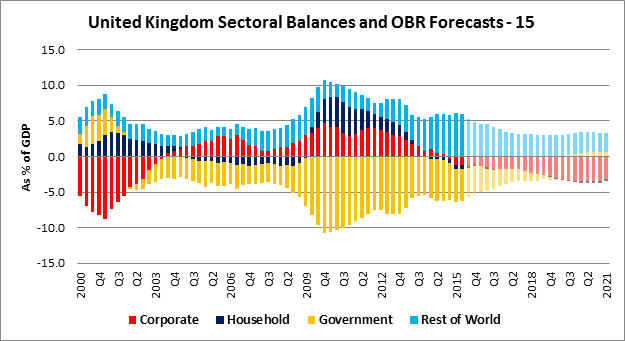
This year the OBR completely changed its forecast. This is how it now projects things are likely to turn out:
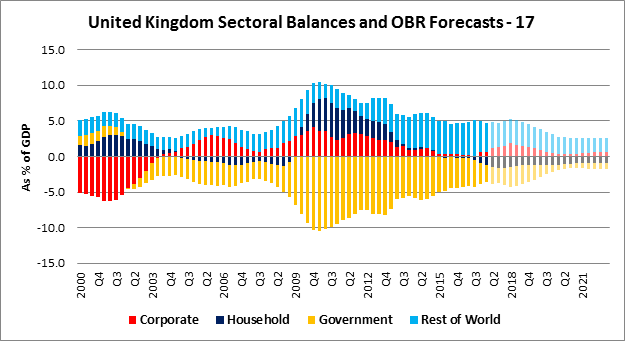
First, notice how both diagrams are symmetrical. What happens on top (that part of the economy that is in surplus) precisely mirrors what happens in the bottom (that part of the economy that is in deficit). This is called an “accounting identity.” As in any ledger sheet, credits and debits have to match. The easiest way to understand this is to imagine there are just two actors, government, and the private sector. If the government borrows £100, and spends it, then the government has a debt of £100. But by spending, it has injected £100 more pounds into the private economy. In other words, -£100 for the government, +£100 for everyone else in the diagram. Similarly, if the government taxes someone for £100 , then the government is £100 richer but there’s £100 subtracted from the private economy (+£100 for government, -£100 for everybody else on the diagram).
So what implications does this kind of bookkeeping have for the overall economy? It means that if the government goes into surplus, then everyone else has to go into debt. We tend to think of money as if it is a bunch of poker chips already lying around, but that’s not how it really works. Money has to be created. And money is created when banks make loans. Either the government borrows money and injects it into the economy, or private citizens borrow money from banks. Those banks don’t take the money from people’s savings or anywhere else, they just make it up. Anyone can write an IOU. But only banks are allowed to issue IOUs that the government will accept in payment for taxes. (In other words, there actually is a magic money tree. But only banks are allowed to use it.)
There are other factors. The UK has a huge trade deficit (blue), and that means the government (yellow) also has to run a deficit (print money, or more accurately, get banks to do it) to inject into the economy to pay for all those Chinese trainers, American iPads, and German cars. The total amount of money can also fluctuate. But the real point here is, the less the government is in debt, the more everyone else must be. Austerity measures will necessarily lead to rising levels of private debt. And this is exactly what has happened. Now, if this seems to have very little to do with the way politicians talk about such matters, there’s a simple reason: most politicians don’t actually know any of this. A recent survey showed 90% of MPs don’t even understand where money comes from (they think it’s issued by the Royal Mint). In reality, debt is money. If no one owed anyone anything at all there would be no money and the economy would grind to a halt.

It’s getting serious.
• China Moves To Curb Overseas Acquisitions As Firms’ Debt Levels Rise (G.)
The Chinese government has served notice on the country’s foreign investment spree in football clubs, skyscrapers and Hollywood as it moves to curb rising levels of debt among domestic companies. The announcement of restrictions in a range of sectors follows a buying spree around the globe during which Chinese firms and business tycoons have taken control of assets including Legendary Entertainment, the US film producer behind Jurassic World and Warcraft, buildings such as the Cheesegrater in London, and English football clubs including Southampton and Aston Villa. The curbs were announced in a document released on Friday by the state council, China’s cabinet, in the latest move to halt a string of foreign acquisitions. This week the IMF described China’s credit-fuelled economic strategy as dangerous, in a strongly worded statement warning that the country’s approach risks financial turmoil.
Raising concerns that some of the companies involved may be taking on too much debt, the council said: “There are great opportunities for our nation’s companies to embark on foreign investment, but they also face numerous risks and challenges.” It added that through the new guidance, the government hopes to promote the “rational, orderly and healthy development of foreign investment while effectively guarding against risks”. The document limits overseas investments in areas such as hotels, cinemas, the entertainment industry, real estate and sports clubs. It also bans outright investments in enterprises related to gambling and the sex industry. The Chinese government had already flagged hotels as an area of concern, having reportedly asked the insurance group Anbang to sell the Waldorf Astoria hotel in New York.
One of China’s biggest conglomerates, Wanda Group, also bowed to pressure from the government when it abandoned the $1bn (£780m) purchase of the entertainment company Dick Clark Productions earlier this year. In 2016 Wanda bought Legendary Entertainment for $3.5bn, having become the world’s biggest cinema operator in 2012 with its purchase of a majority stake in US chain AMC for $2.6bn. At the same time, the document encourages companies to plough money into projects related to the “Belt and Road” project, President Xi Jinping’s signature foreign policy initiative that seeks to link China with other parts of Asia and eastern Europe through multibillion-dollar investments in ports, highways, railways, power plants and other infrastructure.

Why is Wells Fargo a going concern? Close it.
• Wells Fargo Troubles Shift From Phony Bank Accounts To Real Ones (R.)
After paying customers millions of dollars for opening phony accounts they did not want, Wells Fargo has said it is now grappling with the possibility it harmed customers by closing real accounts they needed, leaving them without access to funds. Wells, the third-largest U.S. bank, disclosed in a regulatory filing on Aug. 4 that the Consumer Financial Protection Bureau (CFPB) is looking into the matter, one of many regulatory probes the bank faces over its treatment of depositors and borrowers. A Reuters review of the regulator’s complaints database found several instances of customers reporting financial hardship in recent years after Wells Fargo unexpectedly froze or closed their accounts. Some of the complaints described fraudulent deposits of unknown origin.
Others said they were victims of identity theft and Wells Fargo closed their accounts and refused to reopen them or open new ones. One customer said the bank closed an account after a hacker changed personal information, and then Wells Fargo improperly sent funds to the wrong address. The complaints had consistent themes of confusion about why accounts were frozen or closed, and reflected desperation over being unable to access money, as well as frustration over not getting help from Wells Fargo’s customer service. “I moved money from my mother’s savings account into her checking account the day before she passed away,” one Wells Fargo customer wrote. “This checking account has been ‘locked’ by the fraud department for almost 3 months … Now her debts are delinquent and mortgage about to go into foreclosure.”

Rename the capital!
• Total Eclipse (Jim Kunstler)
I’d like to hear to hear an argument as to why the Washington Monument should remain dedicated to that vicious slave-driver and rebellious soldier, and indeed the name of the city that is the federal seat of government. Or the District of Columbia (after Columbus, who initiated the genocide of Native Americans). Or America, cribbed out of Amerigo Vespucci, the wicked Florentine cartographer who ascertained that the place called Brazil today was not the east coast of Asia but actually a New World — and so all our troubles began![..] Just as empires tend to build their most grandiose monuments prior to collapse, our tottering empire is concocting the most monumentally ludicrous delusions before it slides down the laundry chute of history.
It’s as if the Marx Brothers colluded with Alfred Hitchcock to dream up a melodramatic climax to the American Century that would be the most ridiculous and embarrassing to our posterity. In the meantime, many citizens await Monday’s spectacle of a total solar eclipse in parts of the country. They apparently don’t realize that another eclipse has been underway for months: the total eclipse of reality across the entire landscape of the USA. Now that has been an event to behold, not just some twenty-minute freak of astronomy. What’s being blacked out is the perilously fragile condition of the financial system — a great groaning Rube Goldberg contraption of accounting fraud, grift, statistical deceit, and racketeering that pretends to support the day-to-day activities of our national life.
For months, the recognition of this oncoming financial monster has been blocked by the hallucination of gremlins from the Kremlin infiltrating the recent presidential election. But just as that mirage was dissolving, along comes the treacherous invasion of the Confederate statues. It begins to look like the final piece of the puzzle in the Deep State’s quest to eject Donald Trump from the oval office. His response to the deadly statue situation (“…why not Washington and Jefferson…?”) was deemed so obtuse and unfeeling that even the rodents of his own nominal Republican Party want to jump his ship of state.
So, the set-up could not be more perfect! The country will now get down to the business of a months-long 25th Amendment circle-jerk at the very moment that the financial system flies apart. The damage from the financial clusterfuck will be much more real, and much worse, than anything that might be spun out of the anti-statue crusade hogging the headlines today. It will be interesting to see whether the old legacy media even reports on it as it happens, or whether they will cook up new and more bizarre entertainments to distract the public from what might be the ultimate swindling of a lifetime.

The echo chamber causes hearing damage.
• A House Divided Against Itself Cannot Stand (Paul Craig Roberts)
The liberal/progressive/left are enjoying their drunkfest of denunciation. I can’t say I have ever witnessed anything like it. These are the people who sat on their hands for 16 years while Washington destroyed in whole or part seven countries. Not being satisfied with this level of warmongering and crimes against humanity, Washington orchestrated a conflict situation with Russia. Americans elected a president who said he would defuse this dangerous conflict, and the liberal/progressive/left turned on him. In contrast, one person is killed after the hated Charlottesville protest event was over, and there is endless absurd outrage against the president of the US. Three New York Times presstitutes yesterday blamed the crisis on Trump, declaring him “increasingly isolated in a racial crisis of his own making.”
Apparently, Trump is responsible for the crisis because he blamed both protest groups for the violence. But isn’t that what happened? Wasn’t there violence on both sides? That was the impression I got from the news reporting. I’m not surprised that Trump got the same impression. Indeed, many readers have sent emails that they received the same impression of mutual violence. So Trump is being damned for stating the truth. Let’s assume that the impression Trump and many others got from the news is wrong. That would make Trump guilty of arriving at a mistaken conclusion. Yet, he is accused of instigating and supporting Nazi violence. How is it possible to transform a mistake into evil intent? A mistaken impression gained from news reporting does not constitute a “defense of white nationalist protesters.”
An assertion by the New York Times cannot turn the absence of intent into intent. What the Establishment is trying to do is to push Trump into the arms of white supremacists, which is where they want him. Clearly, there is no basis for this charge. It is a lie, an orchestration that is being used to delegitimize President Trump and those who elected him. The question is: who is behind this orchestration? The orchestration is causing people to run away from Trump or is being used as an excuse by them to further the plot to remove him from office. Trump’s Strategic and Policy Forum headed by Stephen A. Schwarzman ran away, just as members of the Carter Center’s board deserted President Jimmy Carter when he criticized Israel for its apartheid policy toward the Palestinians. The New York Times says that the armed services chiefs are running away. And the entire Republican Party.
The hypocrisy is stunning. For 16 years the armed services chiefs, the New York Times and the rest of the presstitute media, both political parties and the liberal/progressive/left have participated actively or passively in massive crimes against humanity. There are millions of dead, maimed, and displaced people. Yet one death in Charlottesville has produced a greater outpouring of protest. I don’t believe it is sincere. I don’t believe that people who are insensitive to the deaths of millions at the hands of their government can be so upset over the death of one person. Assume that Trump is responsible for the death of the woman. How much blood is it compared to the blood on the hands of Bill Clinton, George W. Bush, and Obama?

Too much monopoly, too much power.
• The Truth Will Not Be Googled (Connelly)
While web-hosting services have been criticised for cancelling the registration of neo-Nazi website, Daily Stormer, progressive left-leaning sites are losing Google ranking and traffic because of a deliberate move to censor “fake” news by the internet search giant. New data released by World Socialist Websites (WSWS) revealed that sites such as Wikileaks, The Intercept, Electronic Frontiers Foundation, the American Civil Liberties Organisation, CounterPunch and many other organisations with the audacity to provide context about the activities of federal governments not reported in mainstream publications have experienced a significant drop in traffic after Google altered its algorithm. (WSWS is an online news and information service founded by the International Committee of the Fourth International, the leadership of the world socialist movement).
Earlier this week, internet hosting provider, GoDaddy, announced it had cancelled US neo-Nazi website, Daily Stormer, for posting an attack on Heather Heyer, the protester who was murdered at the Klan rally in Charlottesville last week. Google and CloudFlare likewise cancelled its registration after the site tried to move its hosting over to their respective services. But while these hosting services are being congratulated by some – and condemned by others on free-speech grounds – for ensuring that those looking to commit violence have to work slightly harder to get access to their like-minded Nazi communities, those who own the means of transmission – namely Google, Facebook and Twitter – are still preventing the rest of us from accessing information that allows people to make sense of the world around us.
Earlier this month, Google altered its algorithm – allegedly in an attempt to address the ‘fake news’ problem – and in doing so, a broad array of anti-establishment news organisations, whistleblower, civil-rights and anti-war websites were censored from its search listings. But most people were too distracted by the opinions of some low-level engineer on Google’s diversity hiring policies and its intolerance of conservative views in the workplace to take notice. The data released by WSWS shows that since Google altered its algorithm, Wikileaks experienced a 30% decline in traffic from Google searches. Democracy Now fell by 36%. Truthout dropped by 25%. Its own traffic dropped by 67% percent over the same period. Alternet saw a 63% decline in traffic. Media Matters saw a 36% drop in traffic. Counterpunch.org fell by 21%. The Intercept fell by 19%.

Ongoing.
• Greek Pensioners Set For Another Blow (K.)
Pension applications submitted after May 13, 2016 – after the so-called Katrougalos law was legislated – reveal significant cuts in pension payments. According to the relevant data, five categories of pensioners will suffer cuts due to the new way pensions are calculated. Overall, experts estimate that by the year 2020 some 200,000 retirees will receive pensions that do not correspond to the amount of money they contributed to the funds during their working lives. In some cases, pensioners will receive 30% less than what they would have received had the Katrougalos law not come into effect. The overall reduction is estimated at 12 to 16%. The hardest hit will be civil servants, especially those who have worked for more than 30 years and belong to the categories of University and Technological Education. Other categories of pensioners that will be negatively impacted are those who made above-average contributions to the IKA social security foundation for more than 30 years.
Meanwhile, those who made medium or large contributions to the TEVE fund for the self-employed will also lose out. Others who can expect to be affected by pension cuts are people who contributed for 30 years to the retailer’ insurance fund (TAE) or the professional drivers’ pension fund (TSA). The new pension system, however, will favor retirees with monthly gross earnings below €700 and less than 30 years of insurance – in line with the declaration made by former labor minister Giorgos Katrougalos that the new system would be classless and favor people with low incomes. This category includes people insured for 20 to 30 years with IKA, who will retire with a gross remuneration of around €1,000, or the former social security fund for professional drivers (TSA). Those insured at several public enterprises (DEKO) and bank funds will also be entitled to an increase in their pension because they pay very high contributions.

Man is losing the world to his own greed. Selling mother earth.
• The Super Gangs Behind Africa’s Poaching Crisis (G.)
“It’s not hundreds of groups involved in ivory trafficking – there are just a handful of networks operating across Africa,” says Paula Kahumbu, a conservationist and elephant expert who runs Wildlife Direct, a Kenyan organisation working to stop the ivory trade and which deploys teams to closely observe trials such as Ali’s. lose scrutiny of cases – including making copies of court documents and video recording proceedings – keeps courts and judges honest and prevents the disappearance of files that so often scuppers trials. Wildlife Direct’s pressure was instrumental in ensuring Ali’s case went the distance. At the end, says Kahumbu, there was “a phenomenal sense of achievement”. “It was a huge surprise,” says Ofir Drori, an Israeli wildlife activist and co-founder of the Eagle Network, a group responsible for the prosecution of hundreds of traffickers, big and small, over the years, and who was involved in tracking Ali.
“Every Kenyan will tell you: what’s supposed to happen is that if you belong to a strong syndicate, you’re out.” It was the syndicate aspect that interested Gretchen Peters. A former foreign correspondent in Afghanistan and Pakistan, Peters had become fascinated by the links between drugs and terrorism that she saw in the Taliban’s heroin operation, and by the hidden connections between other forms of criminality. Ditching journalism, she decided to tackle wildlife crime. Peters set up the Satao Project – named after one of Kenya’s magisterial “tusker” bull elephants, killed by a poacher’s poisoned arrow in 2014 – to investigate criminal gangs in 2015 but quickly ran into the underlying problem: corruption. “If there’s a network that is moving illegal goods from one country to another, there are inevitably government officials involved, protecting them or looking the other way,” she says. “It is impossible for that not to be happening.”
Hired by the US department of state, Peters began by studying ivory supply chains in Tanzania and Kenya, but her investigations quickly enveloped Uganda too and spread into other forms of trafficking. There is in East Africa, she says, “a regional ecosystem moving ivory, drugs and guns … a matrix of different organisations that collaborate to move illegal goods along the Swahili coast.” The overlap between drugs and ivory smuggling came as no surprise to her. “I’m not aware of any syndicate trafficking ivory transnationally that is only moving ivory,” she says. No illicit commodity is as profitable as drugs, so: “When you get up to the traffickers they’re almost inevitably moving narcotics too.”

Thermodynamics 101.
• Want To Fight Climate Change? Don’t Invest In Tesla (MW)
Morgan Stanley identified 39 stocks that generate at least half their revenue “from the provision of solutions to climate change,” something it said was a central component of investing to make a difference, as opposed to just a making a buck. “In our view, impact investing needs to begin with companies whose products and services have a notable positive environmental or social impact,” wrote Jessica Alsford, an equity strategist at the investment bank. Not surprisingly, alternative-energy companies ranked the highest in terms of their positive impact, and the “top five climate-change impact stocks” were all manufacturers of solar and wind energy: Canadian Solar, China High Speed Transmission, GCL-Poly, Daqo New Energy and Jinko Solar. Not among the top companies? Electric-car makers, including Tesla. Elon Musk’s company has been an investor favorite for years, even eclipsing Ford and General Motors in market cap.
Tesla shares are up nearly 66% so far this year, but the good it may have been doing for portfolios may not translate to it doing good for the planet. Morgan Stanley said this was one of the “biggest surprises” of its study. The bank grouped the “climate-change impact stocks” into four sector categories: utilities, renewable manufacturers, green infrastructure companies and transportation stocks. It then analyzed them on a number of metrics, including “the CO2 [carbon dioxide] savings achieved from the products and services sold by the companies,” as well as secondary and tertiary factors centered around the environmental impact of the making of these products. This is where Tesla, along with China’s Guoxuan High-Tech, fall short.
“Whilst the electric vehicles and lithium batteries manufactured by these two companies do indeed help to reduce direct CO2 emissions from vehicles, electricity is needed to power them,” Morgan Stanley wrote. “And with their primary markets still largely weighted towards fossil-fuel power (72% in the U.S. and 75% in China) the CO2 emissions from this electricity generation are still material.” In other words, “the carbon emissions generated by the electricity required for electric vehicles are greater than those saved by cutting out direct vehicle emissions.” Morgan Stanley calculated that an investment of $1 million in Canadian Solar results in nearly 15,300 metric tons of carbon dioxide being saved every year. For Tesla, such an investment adds nearly one-third of a metric ton of CO2.



